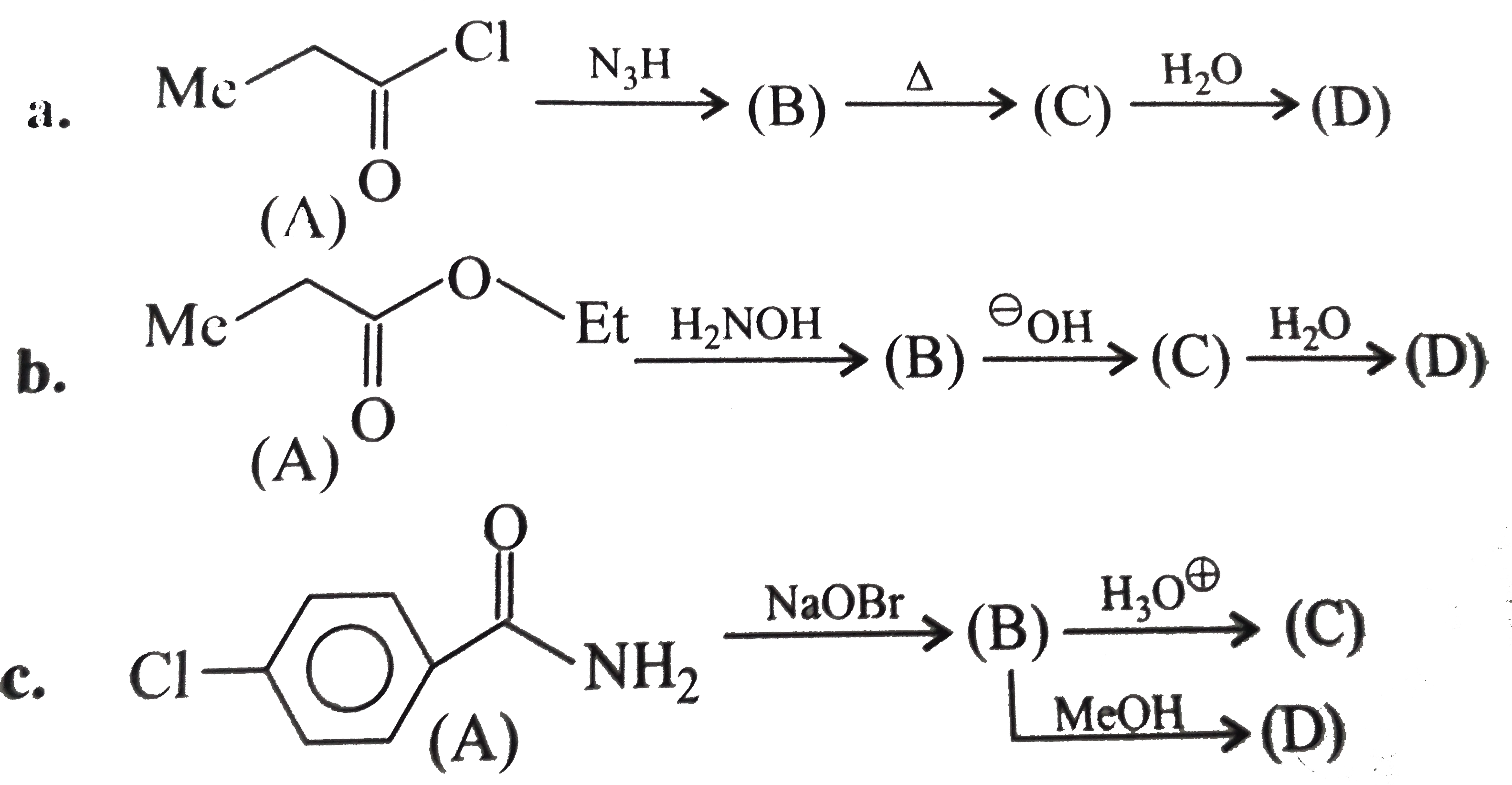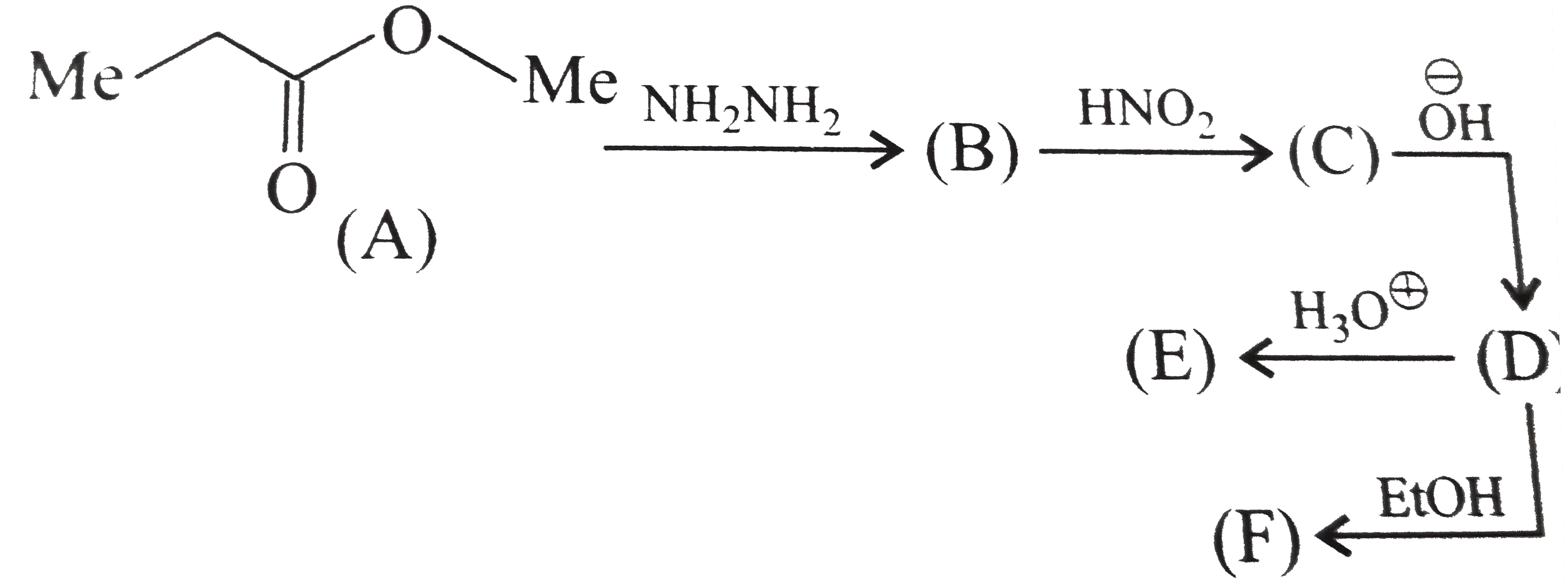(a) Optically active compound (A) with a pleasant smell has a saponification equivalent (S.E)=186. If shows the following reaction.
(i) (A)Br2−−→CCl4NO reaction
(ii) (A)−−−→H3O⊕(B)and(C)Soluble inNaOH
Both (B) and (C) are chiral.
(iii) (C)I2+ӨOH−−−−→ Positive test
(iv) (C)Conc.−−−→H2SO4(D) (No diastereomers)
(v) Ag salt of (B)Br2−−→(±)(E)
(vi) (C)TsCl−−→NaBr−−→(E)(Chiral)
Identify (A) to (E)
(b) How do the structures of (A) to (E) change if
(i) (D) exists as diasteremers.
(ii) (C) gives negative iodoform test.
(a) (i) (A) is an ester since esters have a pleasant smell.
(ii) (A) does not react with Br2∣CCl4 rArr Saturated ester.
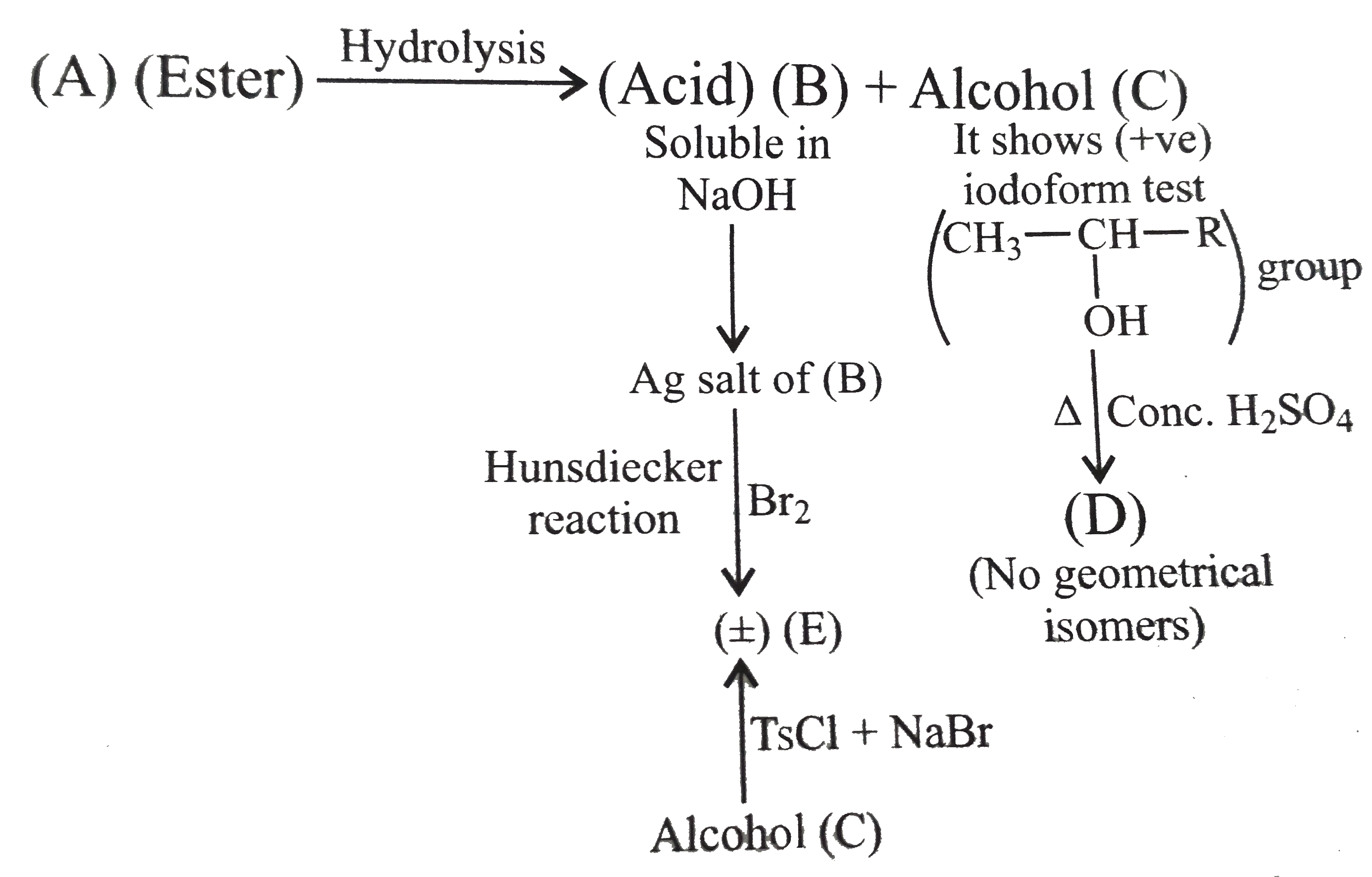
(iii) General formula of ester : (RCOOR).
(S.E=Mw=186)
Number of C atom =Mw− Mass of 20 atoms14
=186−3214=11
(∵Mass ofCH2=14)
Therefore, the molecular formula of ester is C11H22O2.
(iv) Acid (B) must have one more C atom than alcohol (C) because (B) on Hunsdiecker reaction loses one C atom to give (E).(E) is also obtained from (C) with not change in C atom.
(v) Alcohol (C) of the type ⎛⎜
⎜⎝CH3−CH∣OH−R⎞⎟
⎟⎠ on dehydration with conc.H2SO4 gives alkene of the type 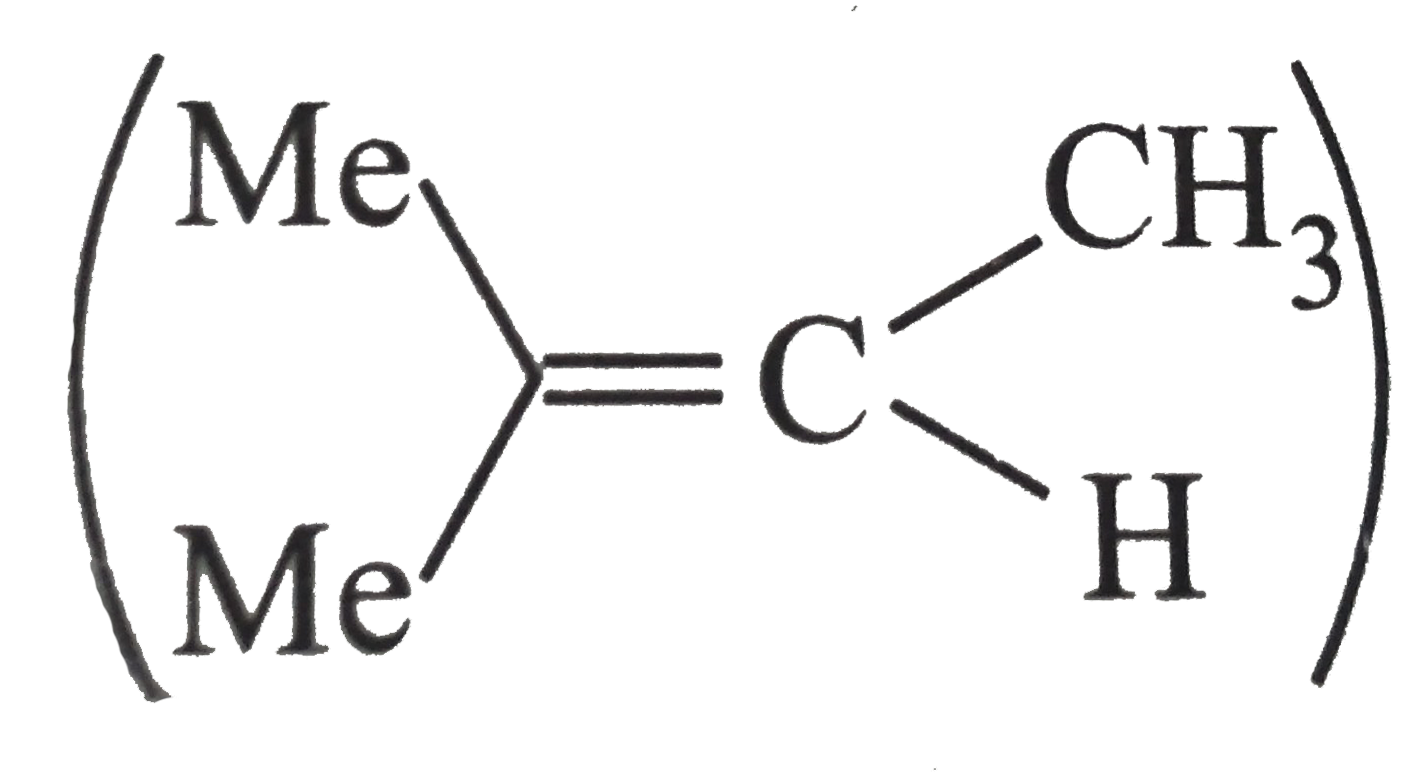 (since it does not show diastereomers).
(since it does not show diastereomers).
(vi) Alcohol (C) contains five C atoms, so acid (B) must contain six C atoms.
(vii) The structure of alcohol (C) must be ⎛⎜
⎜⎝CH3−∗CH∣OH−CH3∣CH−CH3⎞⎟
⎟⎠ and it is optically active.
(viii) Alcohol (C)TsCl+NaBr−−−−−−−→(E)
It suggests that skeleton of (B) and (C) should be the same.
(ix) The structure of acid (B) and alcohol (C) should be of the type :
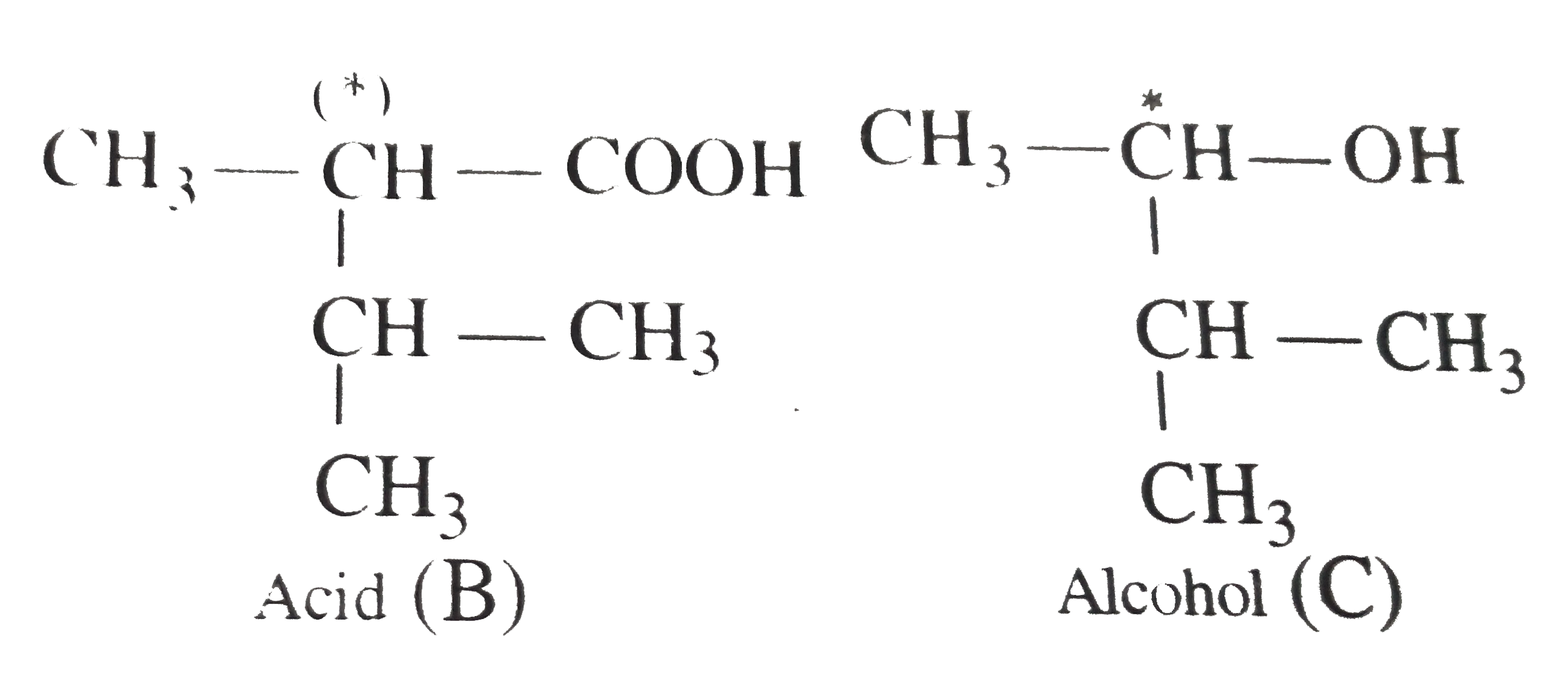
(x) Therefore, the structure of ester (A) would be :
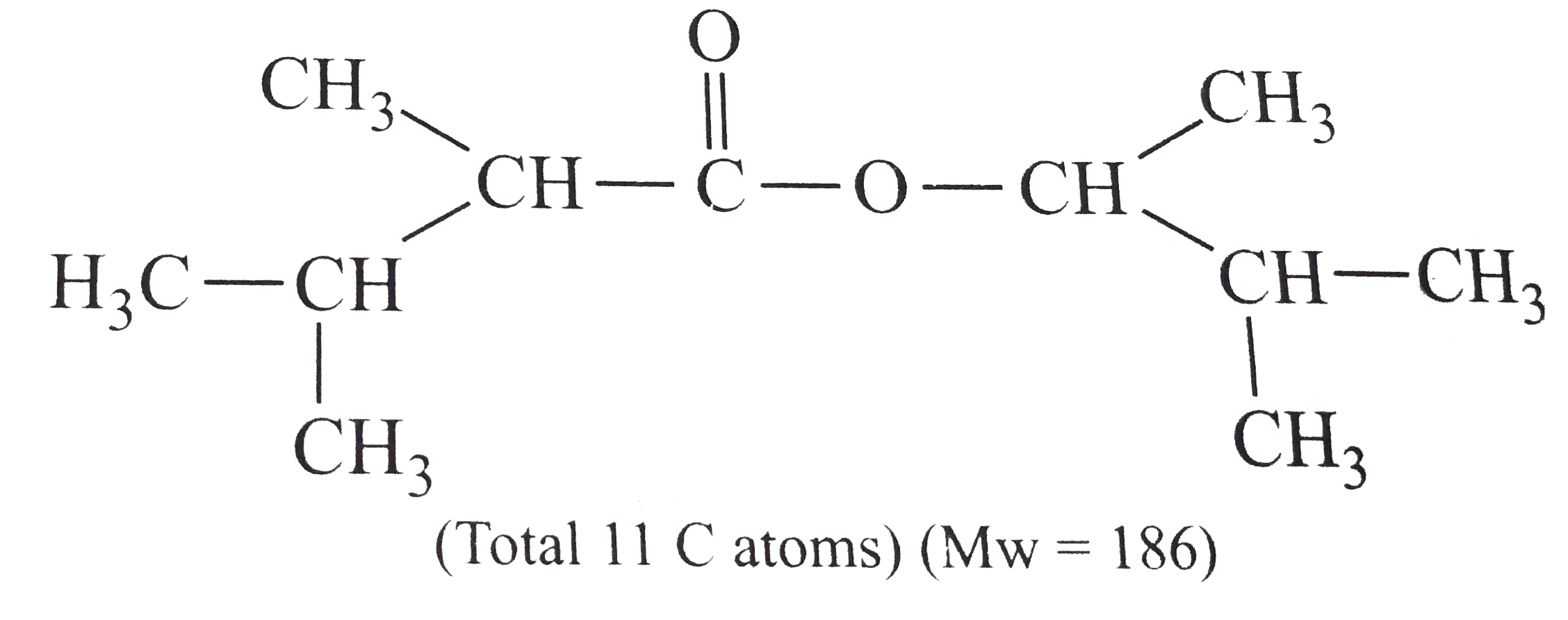
Reactions :
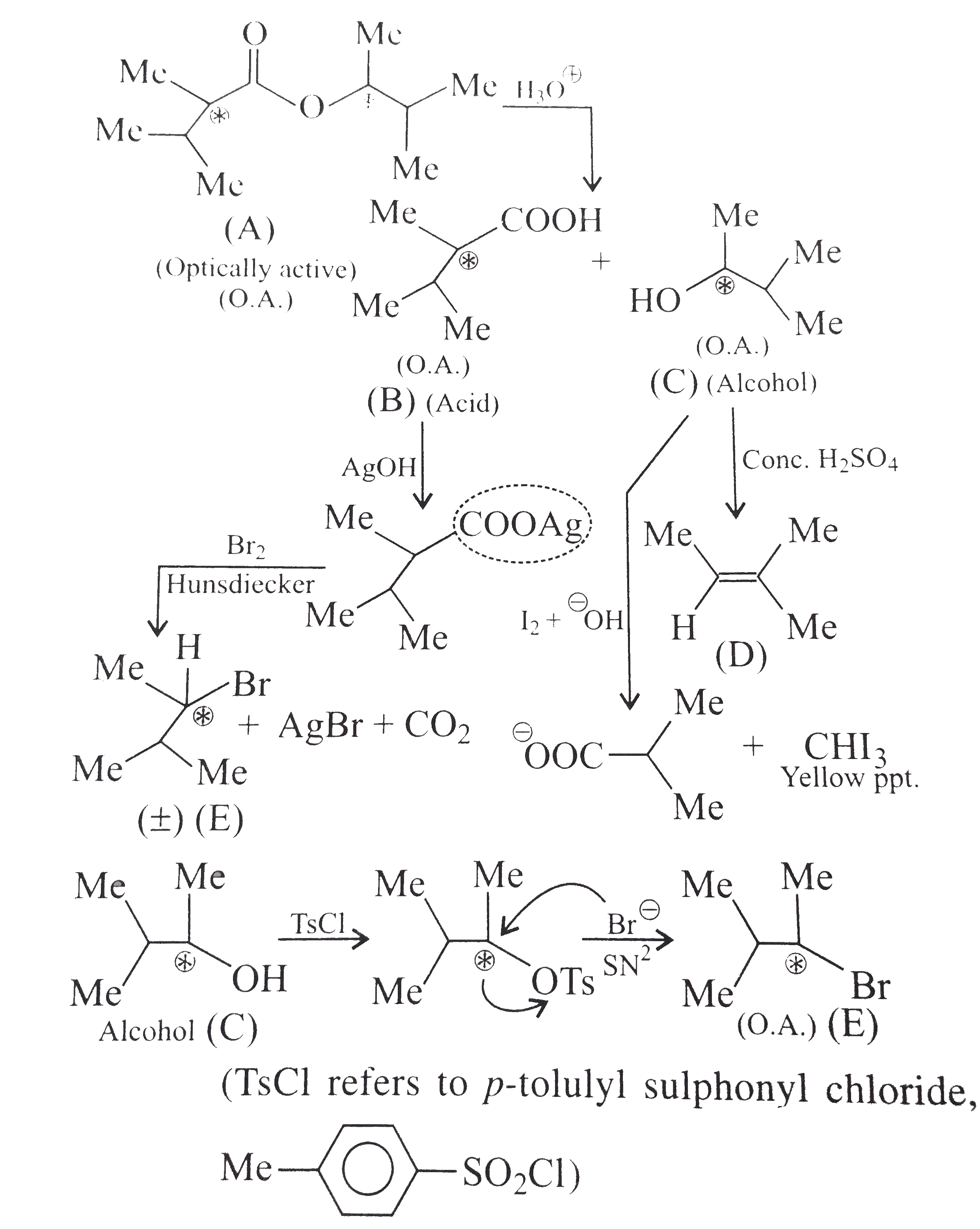
(TsCl refers to p-tolulyl sulphonyl chloride, 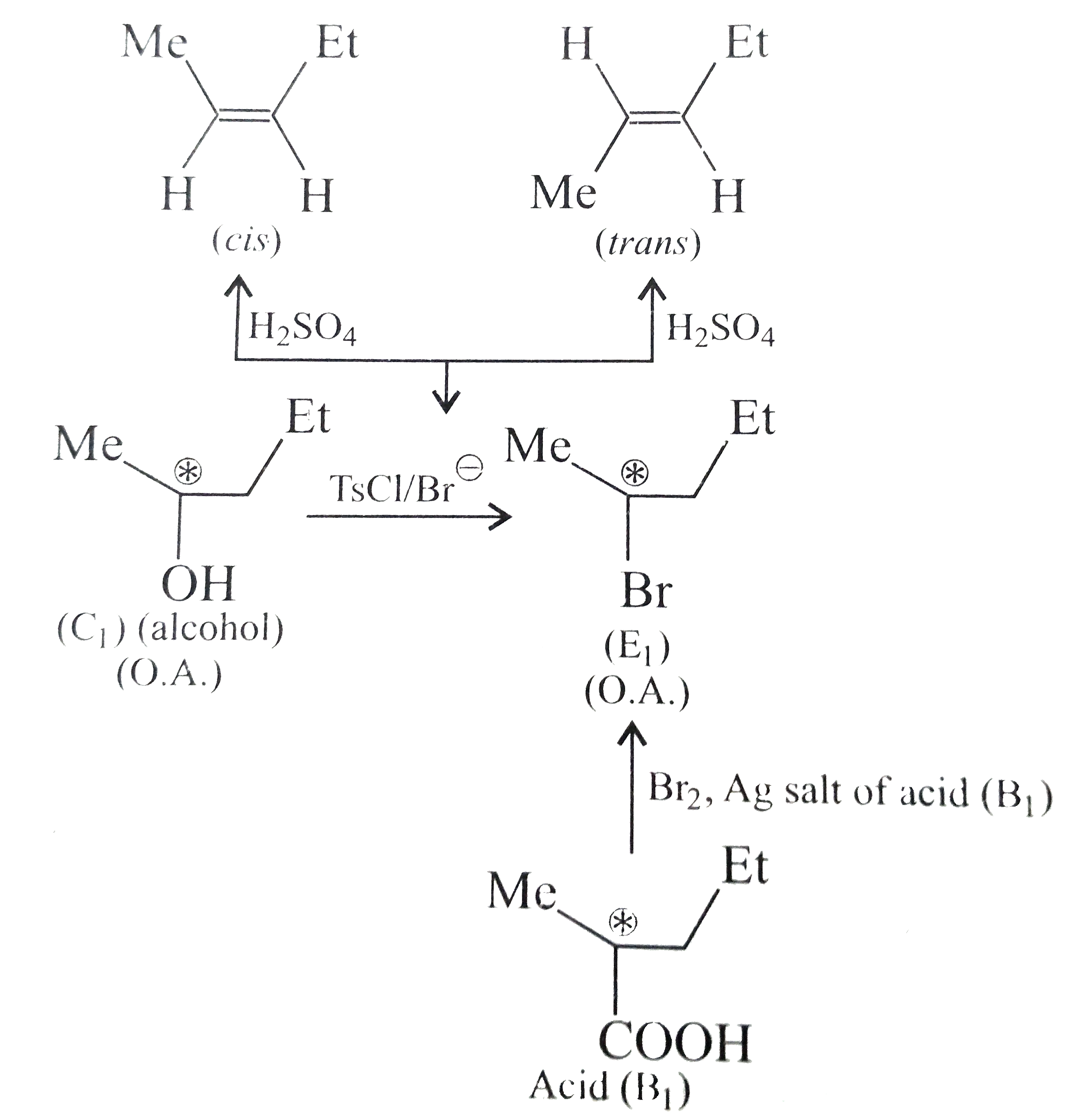 .
.
(b) (i) If (D) exists as diastereomer (i.e. geometrical isomers), then we have
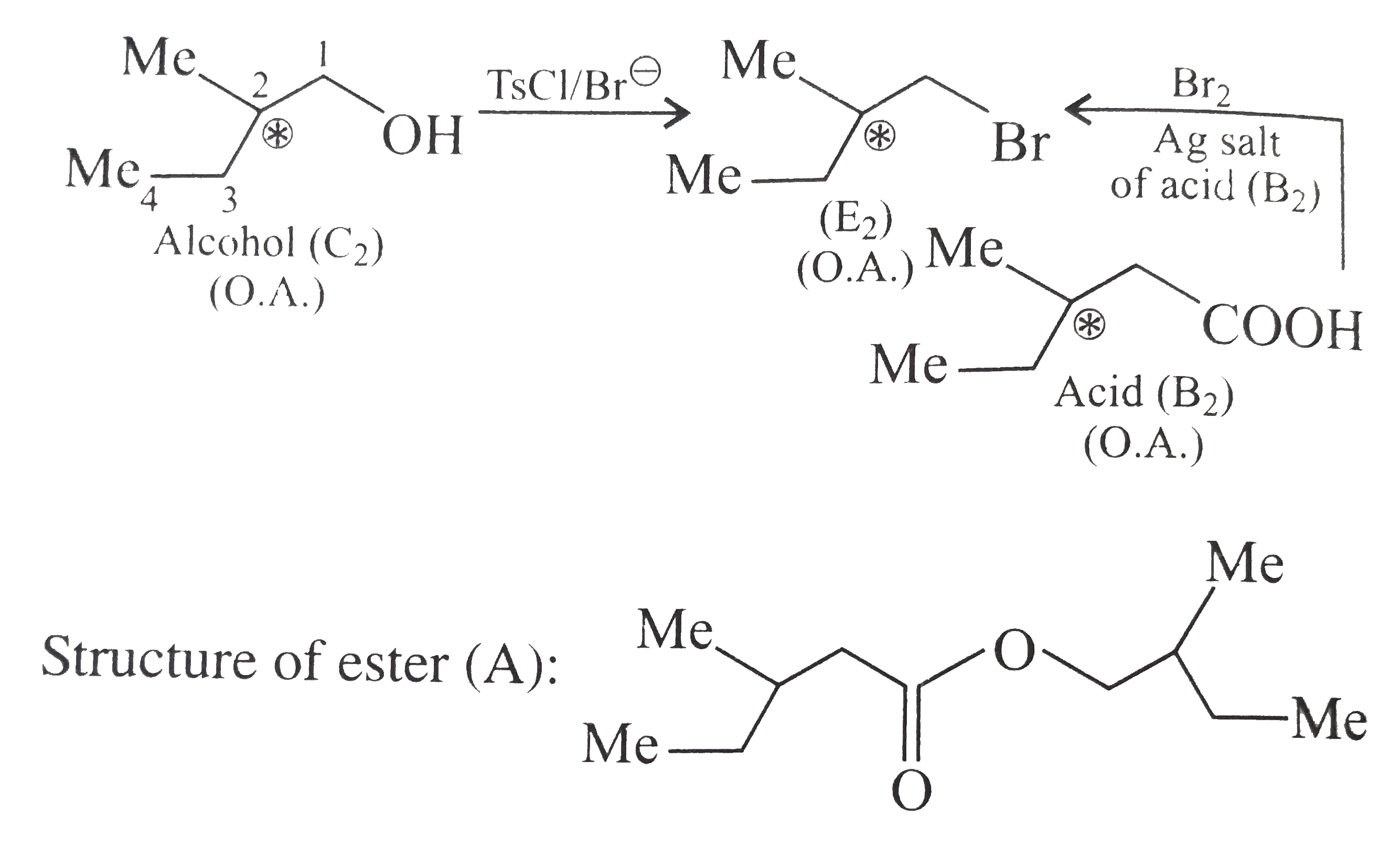
(ii) If alcohol (C) is chiral and gives negative iodoform test, then (C) would be :
⎛⎜
⎜⎝Ho−1CH2−2CH∣CH3−3CH2−4CH3⎞⎟
⎟⎠
Reactions :
Structure of ester (A) :
Topper's Solved these Questions
- BOOK - CENGAGE CHEMISTRYCHAPTER - CARBOXYLIC ACIDS AND THEIR DERIVATIVESEXERCISE - Exercises (Linked Comprehension)34videos
CARBOXYLIC ACIDS AND THEIR DERIVATIVES
- BOOK - CENGAGE CHEMISTRYCHAPTER - CARBOXYLIC ACIDS AND THEIR DERIVATIVESEXERCISE - Exercises (Multiple Correct)35videos
CARBOXYLIC ACIDS AND THEIR DERIVATIVES
- BOOK - CENGAGE CHEMISTRYCHAPTER - CARBOXYLIC ACIDS AND THEIR DERIVATIVESEXERCISE - Solved Examples17videos
CARBOXYLIC ACIDS AND THEIR DERIVATIVES
- BOOK - CENGAGE CHEMISTRYCHAPTER - BIOMOLECULES, POLYMERS AND CHEMISTRY IN EVERYDAY LIFEEXERCISE - QUESTION BANK8videos
BIOMOLECULES, POLYMERS AND CHEMISTRY IN EVERYDAY LIFE
- BOOK - CENGAGE CHEMISTRYCHAPTER - CHEMICAL KINETICSEXERCISE - Archives Subjective23videos
CHEMICAL KINETICS
Similar Questions
Knowledge Check
- Question 1 - Select One
H3C−O∣∣C−COOH(i)NH3−−−−−−→(ii)H2/Pd(A). Identify (A)
ACH3CONH2BH3C−O∣∣C−CONH2CCH3CH2CONH2DCH3CH(NH2)COOH - Question 2 - Select One
The end product (C) of the following sequence of reaction is :
CH≡CH+MeMgBr(1mol)→(A)(i)CO2−−−−−−→(ii)H3O⊕(B)HgSO4/H2SO4−−−−−−−−−→(C).A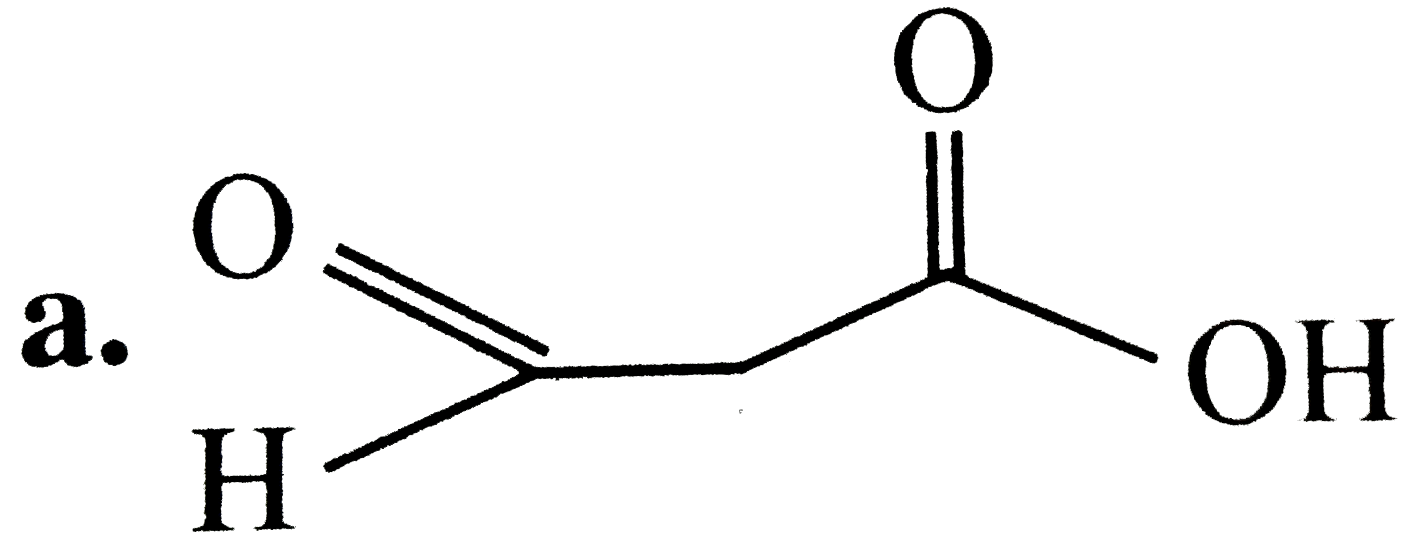 B
B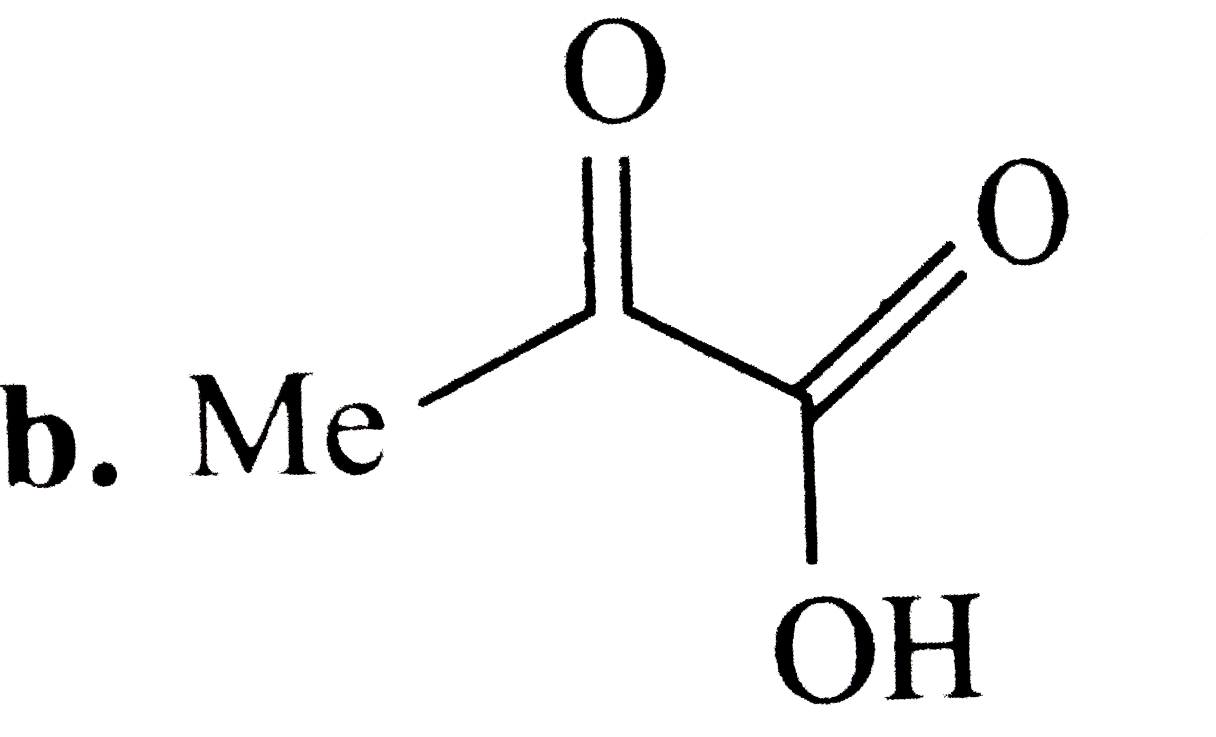 C
C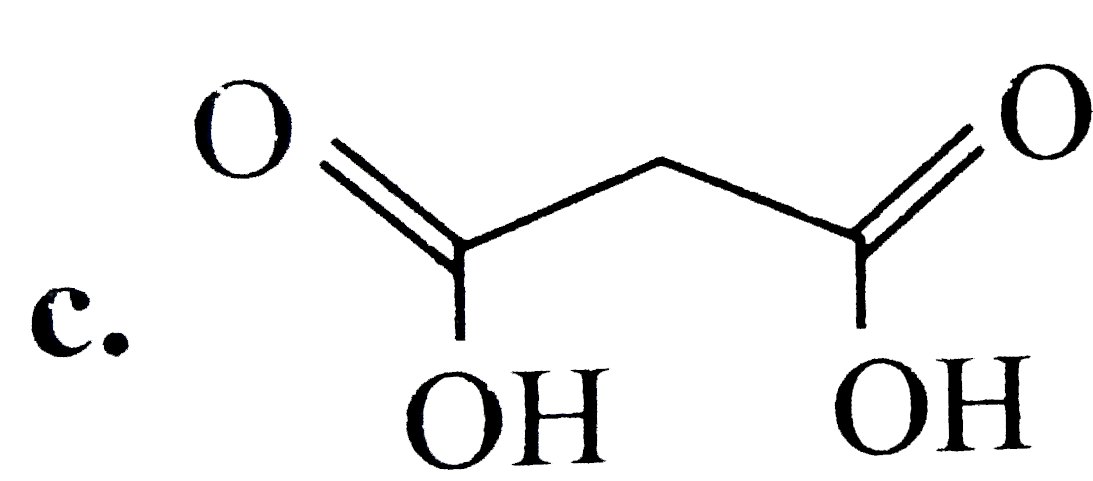 D
D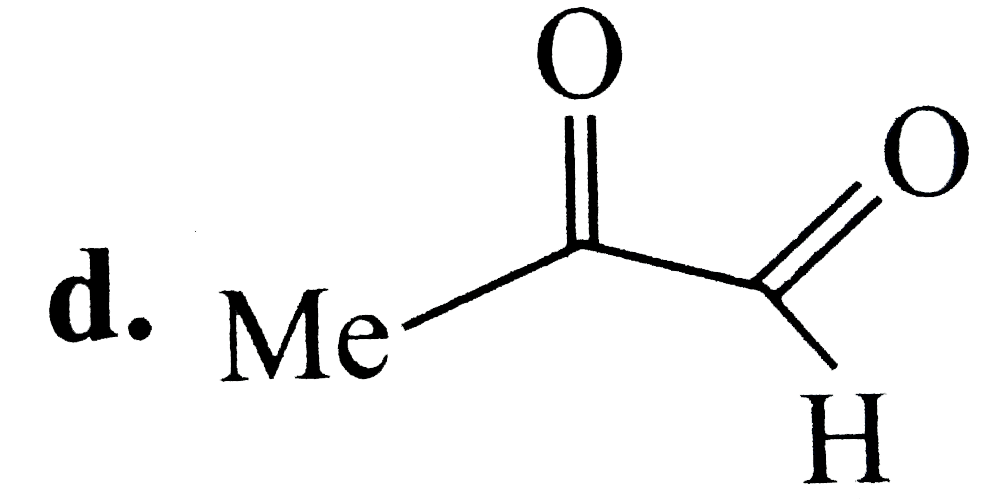
- Question 3 - Select One
Cl−OH∣C−OEtPhMgBr(excess)−−−−−−−−−−→H⊕3O Product :
APh−OH∣C∣Ph−PhBPh−O∣∣C−ClCPh−O∣∣C−OEtDPh−O∣∣C−Ph
Identify the product in following reaction
CH3−CH3∣C=C∣H−CH3D2O/D⊕−−−−−→View SolutionComplete the following reactions
a. PhNH2(A)HNO2−−−→0.5∘C(B)−−−−→DH2PO2(C)
b.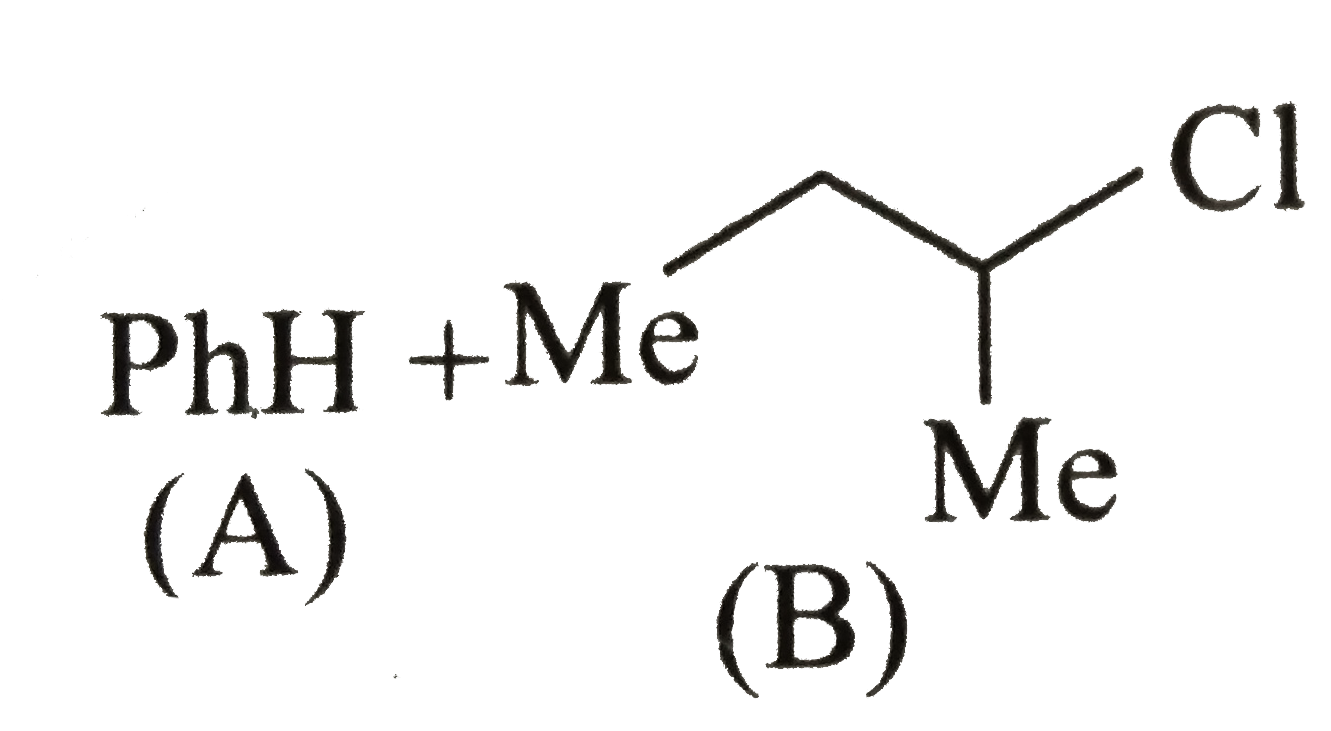
c. PhCH(A)=O+HCN(B)→(C)LAH−−→D
d. PhCH=O(A)+MeNO2(B)ΘOH−−→Fe,FeSO4−−−−−−→H⊕D
e.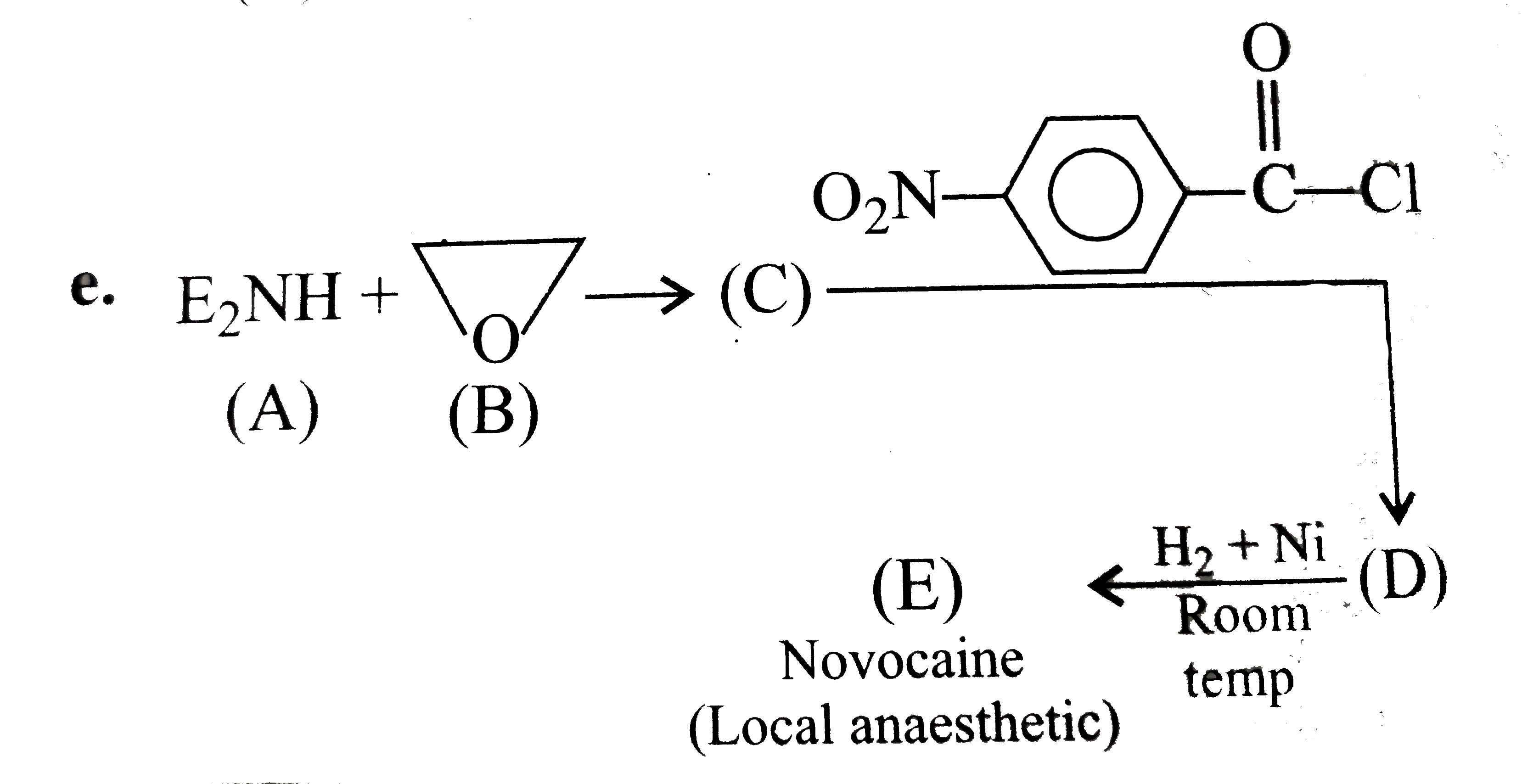 View Solution
View SolutionComplete the following reactions:
a. (A)Glyoxal1.NaOH−−−−−→2.H3O⊕(B)
b. Glyoxalic acid(A)1.NaOH/Δ−−−−−−−→2.H3O⊕(B)+(C)
c.
d. CHOHCO+ΘOH−−−−−−→(B)HCHO+ΘOH−−−−−−−→(C)+(D)
CHOHCO+ΘOH−−−−−−→(B)HCHO+ΘOH−−−−−−−→(C)+(D)
e.
f. View Solution
View SolutionWrite the product ? C6H5COOHSOCl2−−−→(A)Pd/BaSO4−−−−−−→(B)(i)HCN−−−−−−−→(ii)H3O⊕C
View SolutionIn the following sequence of reaction, the product C is
CH3−BrKCN−−→AH2O+−−−→BLiAlH4−−−→EtherCView Solution





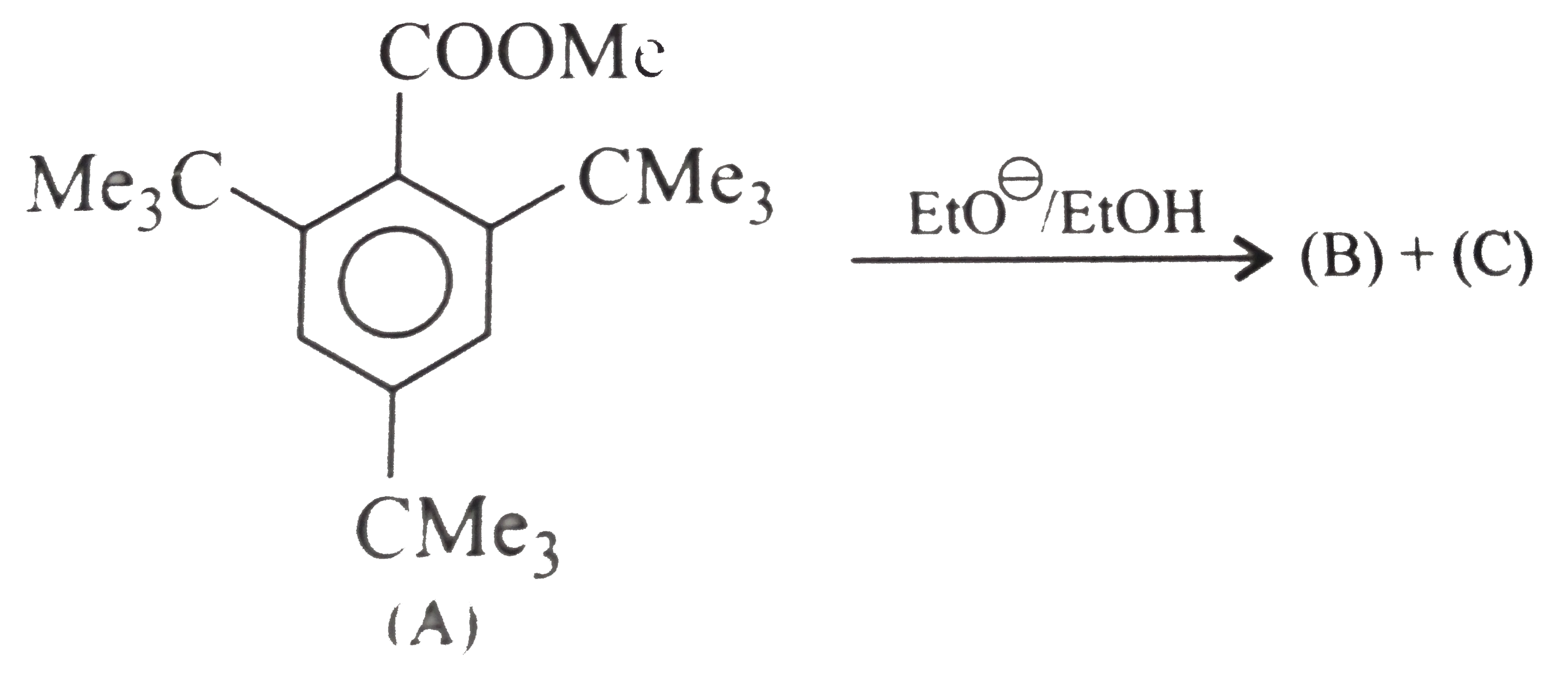
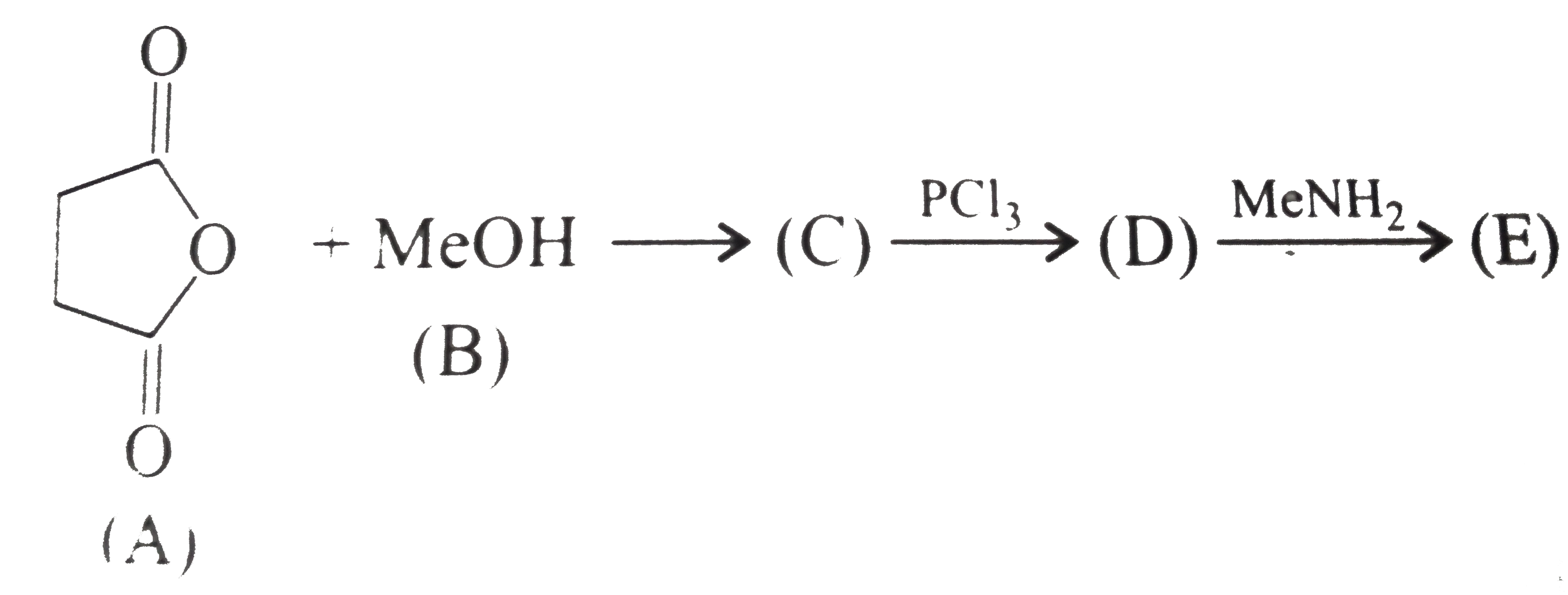
 .
.